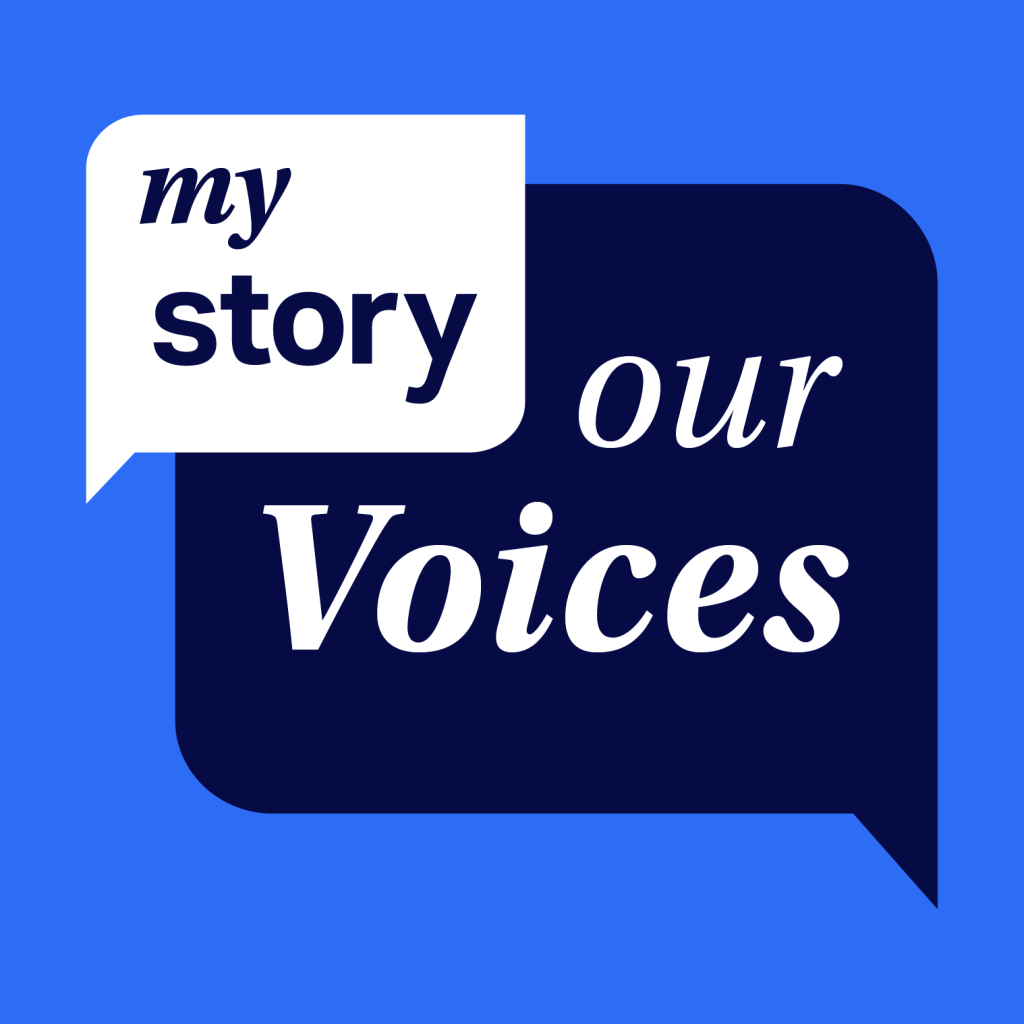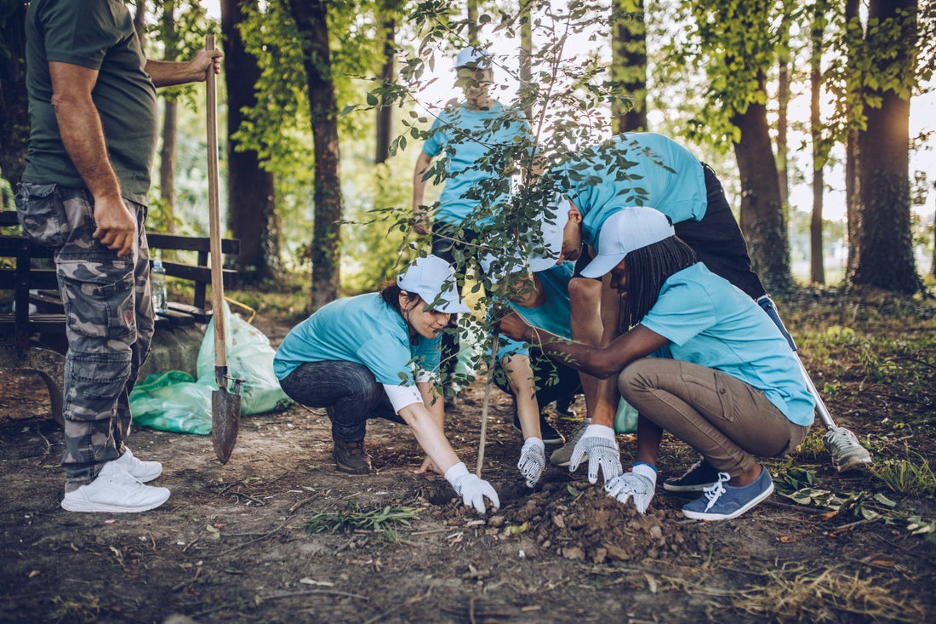Join host James Anderson as he sits down with guest Francis Parisien to discuss how he and his partner decided to become dads…who happen to be gay.
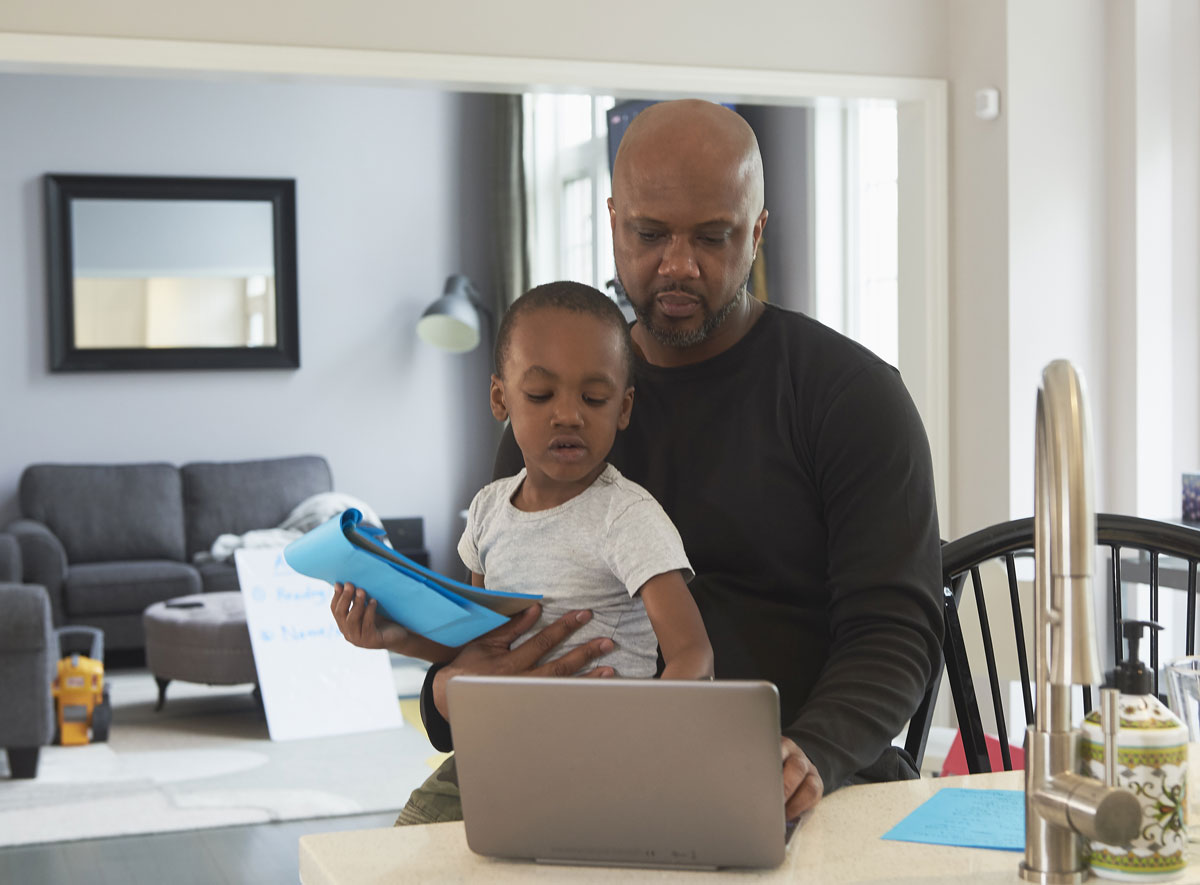
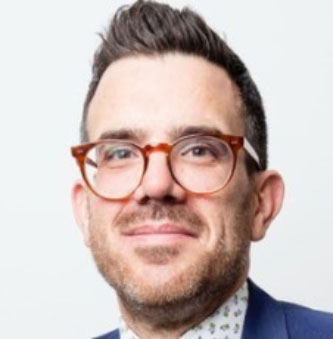
Francis Parisien
Montreal, Canada
Senior Vice President, SMB
Francis has been working with NielsenIQ for 25 years. Francis lives with his partner and children in Montreal, Canada. His interests include music, art, and running. When asked why he wanted to share his story, he said, “It’s a nice story… why not share it?”
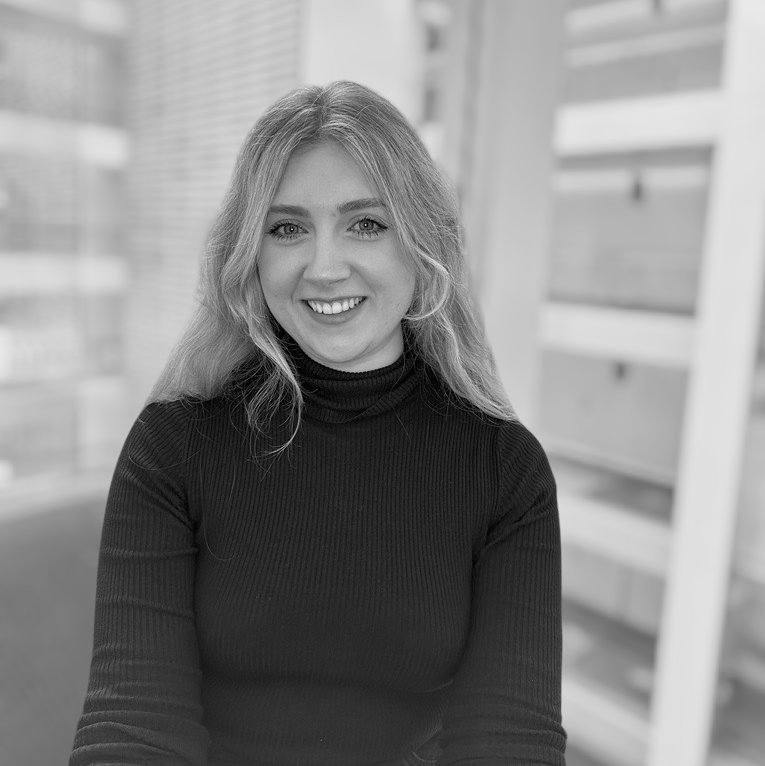
NONE
NONE
NONE
NONE

NONE
NONE
NONE
NONE
Transcript
James: Hello everyone and welcome to another episode of my blank story a podcast from de and I here at NIQ. My name is James Anderson and I’m your host today. My pronouns are he and him and I currently work as a senior analyst on the manufacturing side in the Toronto office here in Canada. I’m joined today by our guest Francis Parisien, who is located in our Montreal office. Frances, welcome to the podcast! Tell us a little bit about yourself.
Francis: Well, thanks for the invite James so Francis I go by he/him like James said I’m based in the Montreal office always been based in Montreal office I’ve been with the company for 25 years. Started by studying at the university of Ottawa then wanted to move to Montreal because I needed something different. I started as a data specialist for our [NIQ] retail services team and now I lead SMB sales – so, the sales team is responsible for working with small and medium businesses here in Canada. I’ve been doing that for the past two years and I’ve got members of my team in Vancouver, Toronto, Quebec City and Montreal. Happy to be here.
James: That’s great. And I know that in total I think your tenure is about 25 years or so within NIQ.
Francis: Yes, that’s I’m going to be 25 years in September. Yeah.
James: Wow, that’s amazing. Thank you very much for being here today and being willing to share your story with us. I’m very excited because I think it’s a very interesting story and very timely because for our listeners we will be releasing this episode in the month of June which has traditionally been the month of Pride, ah, certainly in the North American context and ah I know today we’re going to talk a little bit about that but, we’re also going to talk about, more specifically, your story about becoming a father and you and your partner becoming parents. So ah, before we kind of get into all that I know that in your 25 years here at and NIQ you have made a concerted effort to be involved with our LGBTQ+ efforts within the company. So, I want to ask you a little bit about that. Why did you want to get involved with you know the Pride Employee Resource Groups. Or “ERG’s” as we call them here at NIQ, in the first place?
Francis: It’s funny you mention that James because you’ll see a tie with our follow-up discussion on becoming a gay Dad.
James: Mhm.
Francis: So, when my boss, maybe ten years ago asked me to become Canada’s pride ERG Lead, well not [exclusively] Canada’s Pride ERG lead; I wasn’t really sure I wanted to be that. My boyfriend and I – and we’re not against it – but we’ve never been big like pride partiers or goers. We live our own little life – and I’m not, again, judging anyone who does – but, listen I was doing my own little thing and I didn’t really see the interest of being part of Pride and then that made me realize: I’m so lucky so lucky to just like be doing my own little thing in a very safe environment that is Canada and….
James: Mhm.
Francis: Maybe that was a reason for me to be [sic] implicated [involved] and join and lead our Pride ERG. So, I became co-lead of our North American pride team and then realized, again: oh my god, I’m so lucky. There’s a lot of people out there who cannot lead their lives the way I’m leading my life here right now in Montreal. So, that’s why it became obvious, after a few weeks, that I still had a role to play in this environment and in NIQ [and] within the industry, so that’s why I started co-leading pride for North America then I became a Global Sponsor for Pride at a NIQ.
James: Yeah, that’s a very good point. You raise a really good point that, you know, you and I are both based here in in Canada; a country which is fairly progressive in its views.
Francis: Yeah.
James: There are…there are laws and protections certainly for the LGBT+ community and many others as well. So, to be able to do that, you know, within the country – to be able to be open within the country is one thing – but then also to be able to be open and live your life as a coworker as a colleague within the company – not having to hide or, you know, secrete your life in some kind of some kind of way, you know. That’s really kind of amazing.
Francis: But even that being said James, just to jump on that, like trans issues a few years ago became more public and I thought I was not – not that I wasn’t comfortable – but I wasn’t aware of all the challenges and struggles that that community was living through.
James: True.
Francis: So, for us, even as gays [sic], we could play a role to include everyone within that broad spectrum of people and then make sure that everyone could live their life and work without being impacted by their identity at NielsenIQ and within the industry. So, there’s yes, there’s us [ie: gays in the LGBT+ community]. But there’s…ah…the spectrum is so big now that there’s…there’s always more work to do.
James: Yeah, more room to grow in all in all the areas, right?
Francis: Yeah.
James: Increase the spectrum, kind of thing. So, let’s shift a little bit now, then, into talking about your decision to become – you and your partner’s decision – to become parents. So, stepping away from LGBT for a moment, let’s just talk about why you wanted to become a parent at the age that you did and when you did and why you did.
Francis:
Well, it’s probably the same reason straight people decide to have kids. I’d grown up gay – I’ve known since I was 10 – but I always wanted kids. As I grew older it became – I would say – legal [for gay people] to have kids in Canada. So, it’s always been for me because I was gay [that], was not a reason for me not to have kids. [ie: Being gay in Canada was never a reason to not to have kids, because it has been legal since the 90’s]. So, I’ve been with my boyfriend for 22 years now and I think that on the third or fourth date I asked him, like: “Listen, you want to have kids?” And I [thankfully] ended up going out with someone who also wanted kids. So, for me, the fact that I was gay was not going to stop me from founding a family. So, I was lucky enough to have someone in my life that also wanted to do this. We didn’t want to do it [right away]. We were younger then. I was 25 years [old]. He was 24. And we weren’t ready to have kids back then. We wanted to do traveling. We wanted to do different projects. So, 10 years after we started going out, we brought the project forward and became foster family to kids that we ended up adopting… Maybe I’m going too fast here.
James: No, that’s interesting!
Francis: But from the beginning we had that discussion [that] we both wanted kids. We just made it happen when it was time for us to have kids.
James: That’s amazing. So, touching a little bit on what you said there, we – you and I – are lucky to live in in this country, where we live, and to work for the company that we work for.
Francis: Yes.
James: Where all of that is possible: to sort of, be out and to also to adopt [kids]…without all of the discrimination. That you know, “you’re not allowed to adopt because you are gay” or [as] a member of the LGBT community. [There are places where] there are laws and rules against that [sort of thing] and it’s a very…it’s a privileged position, really, to be in, for us here in Canada. So, did that … I mean, I guess it [that kind of discrimination] didn’t really come into the decisions that you had to make. That wasn’t part of your decision-making process?
Francis:
It wasn’t part. It was part. You know what? It did influence me staying in Canada though for NIQ. Because I had opportunities to work outside this country, but I knew I wanted kids. So for me I should have moved before and then came back to Canada.
James: Interesting.
Francis:
[Canada] probably have one of the easiest adoption processes for gays around the world. So for LGBT people around the world. So I stayed in Canada intentionally because I wanted kids. Not saying that NIQ around the world wouldn’t have helped me with the adoption, but it’s just that laws made it simpler for me to have them in Canada. So yes, it did influence me staying at NIQ and staying in Canada for that reason.
James:
Interesting now you have mentioned that NIQ has been very supportive of you during this entire process. Can you tell us a little bit more about the kind of support you received or the resources that you had from NIQ?
Francis:
To adopt through social services in Canada you need to go to an evaluation process which takes about 1 year. I didn’t tell the company that I was doing that process because I wasn’t sure of the results.
Of course we got accepted, but when I got the answer I did tell my boss and his boss that I was going through an adoption process and that I would need to leave the company without much warning. And that’s actually what happened. And they were super supportive from the beginning. So the evaluation process took a year. But when we got the answer that we were now in the system – let’s call it that way – it [took] six months to have our daughter, thirteen years ago.
Francis:
After six months, I gave my boss a 2-day warning that I was going on Pat (paternity) leave for nine months – uh for nine weeks sorry about that. So social services asked us to take nine weeks for our daughter to get adapted. So I gave him basically – I’m not joking – two days and [I was] like, “listen I’m leaving in two days to take care of this eighteen months old baby”. And basically said “good luck”. And he kept in touch and I got gifts from my colleagues. It was as if I was a straight dad. It was a super process and we did that a second time with our son. For us, they were like listen – and I’ve said this before James and I keep repeating myself – but I’m so lucky to be at NIQ for that. I was never questioned, I was never discriminated. I had to leave at the very last minute, the company was always supportive of us doing this. I’m treated like any parent at the company. So yeah, the company was super good with us.
James:
That’s a really important distinction to make, I think. Because we know that there are other places in the world – there are other organizations in the world where you know if. First of all, they may not have allowed you to have Pat leave. Which, for our listeners is just a paternal leave.
They may have let you take paternal leave but there may not have been a position waiting for you when it was over. There are all kinds of variables and ways that a story like that can play out, right? And so very very fortunate to, you know be with a company that was at least willing to just essentially treat you like any other father who’s becoming, or man who’s becoming a parent. And you know, allow you to have that sort of situation. Now jumping a little bit further ahead here in the story. How old are your kids now?
Francis:
Our daughter is 14, our son just turned 11, yeah.
James:
Ah, it’s amazing. So there has been some time now obviously and um, given all of the privileges that we do have in Canada, you know raising kids and being members of the LGBT+ community. There are still things that have to be considered, right? It isn’t, you know la la land. It isn’t, you know the rainbows and unicorns everywhere. There are still pockets… there are still segments… there are still places where a gay parent would have to take extra considerations that perhaps a straight parent would not have to take. Have you run into any of those and would you share a little bit about that?
Francis:
Listen, traveling is always – we have to take into consideration visit destinations – where we will go. James, you know there are countries in the world that we cannot travel to because it’s dangerous even just as LGBT. So imagine doing that with two kids? I’m not going to put my kids into danger by going to like, some countries that are on the like, bad list. Going to it – listen going through customs, my kids now know what to answer. Because if we even travel to the US, when the customs agent asks us like, who are these two guys to you? My kids know what to answer. It’s not um, non-LGBT parents would not have to like, take that consideration. And we just have to be a little bit more careful – and we do. We’ve been doing that for like, 13 years now. So it’s for us, it’s regular. But it wouldn’t be the same thing for everyone. If I go to the doctors like, if I go to like specialist appointments, I always have to like tell them: listen my kids have two dads. So it’s for me, it’s part of the deal of having kids in a society where they’re open about LGBT parents but they’re still getting used to it.
James:
Right? I hadn’t thought about that one… you know, the legal route. Like people who have the responsibility and duty of care. You know, seeing kids traveling with two men. That can have a very negative connotation for various reasons. So you have to kind of have that all worked out ahead of time, so that everybody knows what to say and what to do. Wow, that’s very interesting. Um, is there anything else you’d like to share with us about being a parent? This is going to be released during June, which is not only Pride Month, it is also Father’s Day Month – for us certainly here in North America. So do you have any advice for other folks out there who are raising teenagers and adolescents that you would like to share with us?
Francis:
Um, James we were talking about that, right? My challenges are very similar to anybody else’s challenges with kids. My daughter is 14, she doesn’t talk to me anymore. She talks to my partner though. So I’m good with that, at least she’s talking to one of us. Ah, listen, the challenges are the same. My guess is eventually, we’ll have to like take into consideration that my kids will ask questions about their process. That being said, at 14, my daughter could be asking these questions and she’s not. Obviously James, both of my kids know they’re adopted, right? There’s no lies here, right? We’re two white guys with two Black kids. So it’s like, they know they will ask questions and we will give them honest answers because you have to be honest, right? That you have to get that – keep the communication going. But we’ve never shied away from any of the tough discussions. We’ve never shied away from being out there in the community.
We live in a small – I work in the Montreal office – but we live in a small community of like 2000 people. We’ve got kids coming to see me and they’re like “is it true Dylan has two dads?” And I’m like, “yes”. And they just ran away and they don’t care. Kids don’t care. But we’ve never shied away. I think you have to be… recognize that, here I’m talking to LGBTQ would-be parents. You have to recognize that you’re different. But difference doesn’t make you weirdos in the community.
James:
Yeah, and it doesn’t make it impossible.
Francis:
It doesn’t make it Impossible. We’ve got a good community of friends. I see my son talking to like, everyone on the street. Our situation doesn’t make it different for him. It only makes it better, right? Because he’s got a loving family. He’s got like… yeah. He knows that – my kids know they’re loved. I think my kids know they’re lucky too. If it wasn’t for the situation, they would have been in a different environment, let’s say. But there’s resources out there. We’ve talked about that James. Like, I can become a resource for someone who wants to like, do the same process, right? I did tell you that we were a group of 6 families that did exactly the same thing.
James:
Oh wow!
Francis:
Oh yeah, there’s people out there that are ready to help. I think we’re at the beginning of something, but this is getting more and more normal out there. This is going to be shared in June, but we just passed Mother’s Day. And it’s funny how during the first Mother’s Day, the teachers called us and they’re like “What do we do with your kids?” And we’re like “Just do a card for grandma”. My kids know. I think it’s tougher for you to deal with Mother’s Day, than it is for them. Just do a card for Grandma. And for Father’s Day, just make sure they do 2 drawings for one of us each. So it’s.. Listen, people are getting used to our situation. And we’re getting used to – not being the face of this – but we’re part of the first families to do it. And it’s going to get more and more normal.
James:
That’s wonderful because I’m just thinking, part of the reason that we do – you know a DEI podcast is that we want people to feel comfortable to reach out and ask those questions before an embarrassing situation occurs. So I think it’s quite remarkable that you know we’re, again we’re lucky enough to be in a time and in a place where the teachers, for example thought ahead. That it was even in their consciousness to think about ‘oh we should reach out to Francis and his partner to find out’. You know ‘How do we address this thing that’s happening with all of our students in the class? How do we shift this and address this?’ And again, like you said, you sort of end up being the poster boys for how it’s going to be dealt with in the community. But it takes leadership like that, you know the first people who dip their toes in and kind of do it, wherever it may be. It’s always going to be a little bit like that.
Francis:
Yeah, and it’s funny James because we did talk about this podcast before the recording right? And I wasn’t sure my story was interesting enough for us to talk today. And then as we chatted, I realized I’m really lucky. I’m really lucky to be in this country. I’m lucky to be working for a company that doesn’t discriminate me at all for being who I am, who helps me when I need support. And there’s the community that then supports us. So I think that’s the interesting part of my story, is that, listen I’m a dad. I’m probably a boring dad to my kids. I do soccer. I do competitive hip hop dance. I do like everything else that the non-LGBTQ dads do. But it’s, I think that’s a testament of how lucky we are to be in this kind of environment.
James:
Well and I think it’s also, as you just said, I think it’s important to share those kinds of stories because otherwise we don’t hear them. That’s why we do this podcast, so that people can find out that you being a dad is no different than anybody else being a dad. Or you guys being parents is no different than anybody else being parents. You know, you’re dealing with teenagers, they’re dealing with teenagers. You’re dealing with adolescence, they’re dealing with adolescence. It’s not, once you remove the LGBT sort of inflammatory tag to all of this and you set it aside, it’s just parents being parents. But then there are unique things that do fall into the column or the category of LGBTQ+ parents, right? Like you said, the travel thing. Or having to be aware of the environment where you are, you know? Your kids are going to get asked awkward questions because people they meet are not going to understand, you know. Because it is that – I don’t want to say it’s a new frontier – but to your point, you brought that up, it is starting to happen and on the way to normalization. There will have to be these awkward periods and it’s kind of okay.
Francis:
Yep, it is okay, it is okay. But you’d be surprised James, like going to Mexico – and it’s kind of funny because I told the story of this young kid coming to see us and asking us if we were the two dads. But I’ve seen adults doing that in Mexico. And they’re like, ‘ah, you’re like the two dads of these kids, yes?’ And then they just thanked us of doing this for the kids. They realized that we’re actually helping these kids have a better life and then they move on. It takes like 15 seconds of realizing, ‘Okay, this is a different family. They’re doing something great, let’s move on’. So I think you’re right, I think there need to be examples of like, first steps of us doing this and then it normalizes everything. No no sorry, it doesn’t normalize everything, but it makes, I would say makes it more acceptable. Again, just saying that sounds weird because it is acceptable.
James:
I Know that’s what we talked about in the discussions getting ready for this, that we wanted, we almost wanted to talk about quote unquote, how boring it is for you to have to tell this story. Because of the environment we live in, the company that we work for or the podcast that you get to share this story on – which is a company sponsored podcast. That you can share this without fear of repercussions, without fear of negativity. You know, all that kind of stuff, so it’s pretty important I think.
Francis:
Listen, we’ve had that discussion before – that if we could influence other companies to be the same way to their employees, the same way we get treated here, then so be it, right? That could be one of the advantages of doing this discussion today.
James:
Exactly. Leadership is just simply that, stepping out of a comfort zone and trying something new. Well Francis, I want to thank you for stepping out of your comfort zone and helping us here today to make all of this better and sharing your story.
Francis:
My pleasure, honestly James.
James:
And thank you all for listening today to this episode of My Blank Story, a podcast sponsored by DEI here at NIQ. Please make sure to visit our website and take a look at all of the other episodes that we have produced and, have a listen. Thank you.
